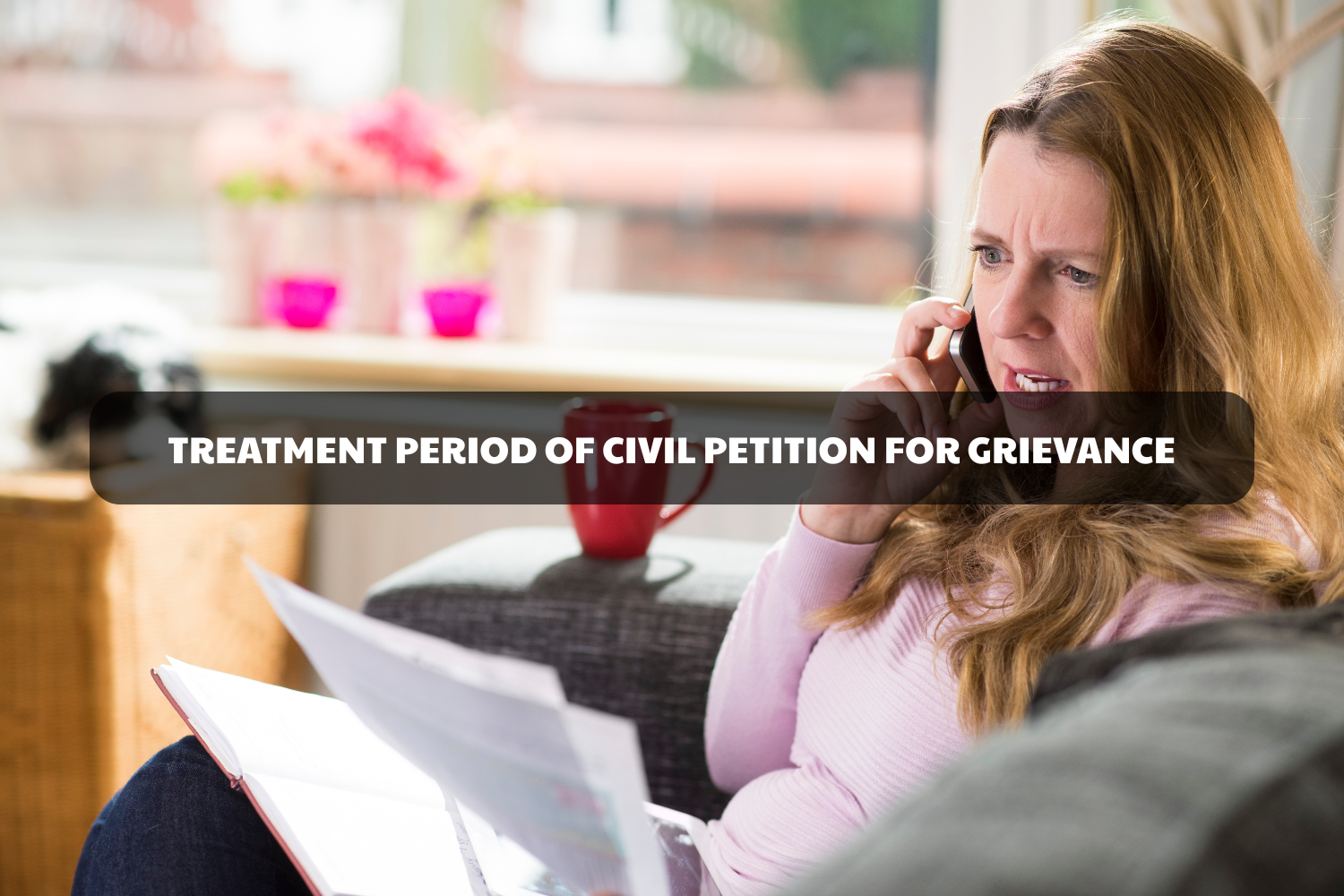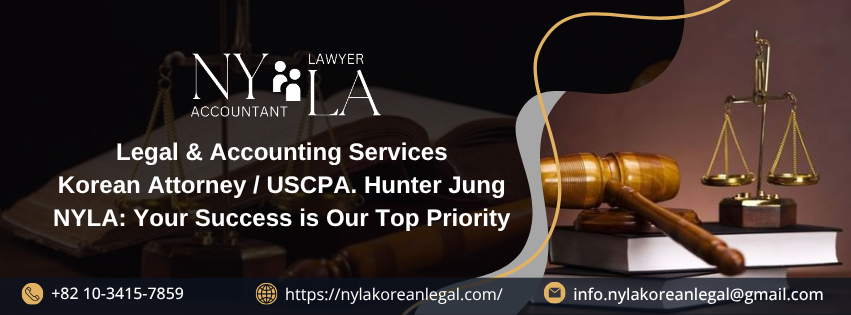Summary
- 1. Understanding the Civil Petition for Grievance
- 2. Civil Petition for Grievance Treatment Period: The 14-Day Rule
- 3. Repetitive Civil Petitions for Grievance and Inspection Procedures
- 4. Corrective Actions Following Civil Petition for Grievance
- 5. On-Site Surveys in the Civil Petition for Grievance Process
- 6. Filing with Supervisory Agencies: A Secondary Civil Petition for Grievance
- 7. Notification and Respect for Supervisory Agency Findings
- 8. Final Escalation: Civil Petition for Grievance to the Anti-Corruption and Civil Rights Commission
- 9. Conclusion: Empowering Citizens Through the Civil Petition for Grievance System
- 10. About NYLA – Korean Legal Office
1. Understanding the Civil Petition for Grievance
A civil petition for grievance is a formal request submitted by a citizen to an administrative agency, seeking redress or resolution for perceived unfair administrative actions or policies. This petitioning system plays a pivotal role in ensuring transparency, accountability, and responsiveness in public administration. As stipulated by the Enforcement Decree of the Civil Petitions Treatment Act, such petitions must follow a structured timeline for investigation and resolution.
2. Civil Petition for Grievance Treatment Period: The 14-Day Rule
The core regulation mandates that once an administrative agency receives a civil petition for grievance, it must take appropriate action within 14 days, except under special or extenuating circumstances. This ensures that grievances are handled swiftly and do not linger, offering a predictable timeline for citizens.
This 14-day window is designed to ensure quick responsiveness and to maintain public trust. In cases where it is not feasible to meet the deadline due to unavoidable reasons, agencies may extend the period—but only once, and only up to seven additional days.
3. Repetitive Civil Petitions for Grievance and Inspection Procedures
When a petitioner files a civil petition for grievance with identical details more than once, the head of the administrative agency must escalate the issue to the inspection department or a similar supervisory body. This ensures due diligence and avoids redundant processing.
The inspection body is tasked with investigating the matter thoroughly to determine whether new actions or considerations are required. Such procedures uphold the integrity and reliability of the grievance redress system.

4. Corrective Actions Following Civil Petition for Grievance
If the administrative agency concludes that a grievance was justified based on the civil petition for grievance received, it is required to take immediate corrective measures. These may include canceling or modifying the initial administrative action that triggered the grievance. The agency must also inform the petitioner of the results and corrective actions taken.
This provision ensures transparency and reassures petitioners that their concerns are taken seriously, and errors are appropriately rectified.
5. On-Site Surveys in the Civil Petition for Grievance Process
In certain cases, handling a civil petition for grievance requires conducting an on-site survey. The law permits such surveys to be completed within the initial 14-day timeframe. If an on-site investigation cannot be concluded within that period due to extenuating circumstances, an extension of up to 7 days is permitted.
Importantly, the time spent conducting the on-site survey does not count toward the 14-day deadline. This flexibility allows for a thorough and fair investigation while respecting the urgency of petition resolution.
6. Filing with Supervisory Agencies: A Secondary Civil Petition for Grievance
If a petitioner is not satisfied with the outcome or has undergone an internal investigation, they may escalate the issue by filing a civil petition for grievance with a supervisory agency. This agency must have the authority to oversee, supervise, or guide the actions of the administrative body concerned.
The supervisory agency follows similar procedures regarding the 14-day treatment period, inspection protocol, and on-site surveys. This ensures consistency in grievance handling across various levels of the administrative structure.
7. Notification and Respect for Supervisory Agency Findings
After the supervisory agency has treated a civil petition for grievance, it is required to notify the relevant administrative agency of its findings. In the absence of exceptional circumstances, the administrative agency should respect the supervisory agency’s decision, implement necessary actions, and inform the original petitioner.
This layered system of review strengthens institutional accountability and creates an effective feedback loop between agencies and citizens.
8. Final Escalation: Civil Petition for Grievance to the Anti-Corruption and Civil Rights Commission
Even after receiving a response or conclusion from a supervisory agency, a petitioner has the right to escalate their civil petition for grievance to higher bodies like the Anti-Corruption and Civil Rights Commission or a Local Ombudsman. This right is guaranteed under the Act on the Prevention of Corruption and the Establishment and Management of the Anti-Corruption and Civil Rights Commission.
These institutions function independently and are tasked with overseeing the fairness and legality of administrative actions, offering citizens a final avenue for justice.
9. Conclusion: Empowering Citizens Through the Civil Petition for Grievance System
The civil petition for grievance system in Korea is a critical democratic mechanism that ensures citizens have the right to question, challenge, and seek correction for administrative decisions. The 14-day treatment period, structured review processes, and the option for multi-level escalation underscore the country’s commitment to fair governance and administrative transparency.
By understanding the timelines, procedures, and rights involved, both citizens and officials can engage more effectively in the grievance redress process. Whether at the administrative level or escalated to supervisory bodies, the emphasis remains clear: every civil petition for grievance deserves timely, fair, and thorough treatment.
10. About NYLA – Korean Legal Office

■ NYLA – Your Trusted Legal Partner in Korea
At NYLA, we understand that the success of foreign businesses in Korea requires not only a solid business strategy but also reliable legal support. With a team of experienced Korean attorneys and legal professionals, NYLA provides tailored legal services for companies, investors, and individuals operating or planning to establish a presence in Korea.
We support our clients throughout the entire business journey with comprehensive services, including:
- Legal consultation on company establishment, taxation, and immigration;
- Advice on commercial real estate, franchising, and product distribution;
- Support in human resources, marketing, and business strategy.
In addition to legal advisory, NYLA also represents clients in civil litigation cases related to business, labor, marriage, family, and inheritance to ensure their rights and interests are fully protected.
■ Contact NYLA

If you’re a foreign business or individual looking for a reliable legal partner in Korea, NYLA is here to help. We are committed to delivering effective, practical, and personalized legal solutions for every client.
With a proven track record of assisting hundreds of international clients, our team is equipped to help you navigate complex legal challenges—whether it’s commercial disputes, contract issues, or foreign investment guidance.
Don’t let legal matters hold you back. Let NYLA be your trusted guide in the Korean market.
■ Get in touch with NYLA for expert legal support
| Website: https://nylakoreanlegal.com/
FB: https://www.facebook.com/nyla.koreanlegal Tiktok: https://www.tiktok.com/@nylakoreanlegal Youtube: https://www.youtube.com/@NYLA-xd8qx Email: info.NYLAkoreanlegal@gmail.com SĐT: +82 10-3415-7859 |
 |






















































